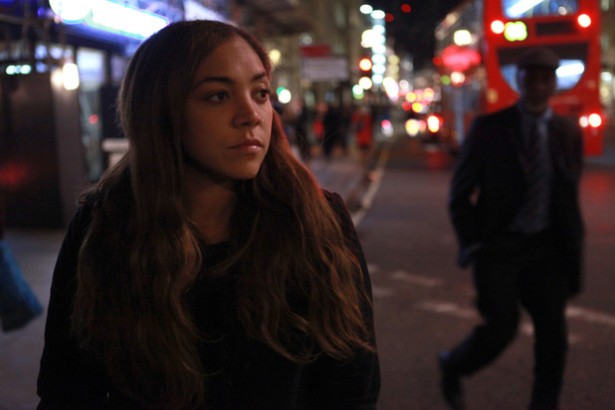THE CONTEXT:
When we get the chance (and the inspiration), we like to share what’s moving the people who work at Invisible Children. We’ve presented many literary recommendations, and this is our first film (well, television) suggestion.
Before I expound, it should be noted I am extremely biased to this choice because I am a definite Anglophile. I firmly believe the cultural (music, film, television) grass is greener on the other side of the pond. And that includes documentaries – in specific, the one I watched last night hosted by Miquita Oliver called Young, British and Broke.
I’ve been following Miquita Oliver’s career since she started on Popworld, a music show that I ate up, so I was instantly interested when I saw that she would be presenting a television documentary for BBC Three this week.
THE FILM:
Young, British and Broke discusses the recent sensation and peak in use of payday loans across Britain. (They say a million people will take one out this holidays season. Which is a lot.) To be honest, I knew little about what a payday loan even before I started watching. I equated it to a cash for gold type deal – a “get money, get it now” thing. Which, I guess, is actually pretty similar to a payday loan. According to the all-knowing Wikipedia, a payday loan is defined as: “a small, short-term unsecured loan, regardless of whether repayment of loans is linked to a borrower’s payday.”
Miquita interviews people who take out frequent payday loans, goes undercover to see the vetting process for loan allowance, sets up a fake loan shop to see why people take them out, speaks with a former employee of a loan company, and visits friends of a man who took his life due to the stress of building payments. It’s all quite intense. And amazing.
The choice of Miquita Oliver as a host was a bold one as she herself is not known for quality money management – she had a bankruptcy that went very public with thanks to the lovely British press. But, it’s her presenting that adds a whole other dimension to the documentary. It’s as if she’s the ambassador to the ill-managers of finance – she brings an understanding that would be absent with anyone else who hasn’t been through financial struggles.
Through her interviews, it is clear there are many different reasons that contribute to the decision to take out a loan people know they can never pay back – a lack in understanding of the interest rates, a loss of job, a personal vanity and serious need to have huge nights out, addictions, and pride. All these reasons, though, are valid and explored throughout the film by highlighting specific individuals and their motivation, history, and attitude towards payday loans.
The documentary shows a nuance neglected from the discussion (really mainly ever just a comment) about the lack of financial responsibility of the youth. It goes a step further and shows the faces, and the reasons, and the effects of a practice that makes huge companies millions each year.
A huge thing I love about this film is that it is unabashed in its condemnation of the companies who exploit the financial ignorance of their customers. It’s in no way objective; it’s entirely, and humanly, editorial.
THE THOUGHT:
Being a media company, Invisible Children is inspired by honest portrayals of story, and that’s exactly what I found while watching this. It’s not patronizing or accusatory, but it’s not bleeding-heart either. It’s a contextualized (very different than subjective) look into the realities millions of people in Britain are facing.
It is truly one of the best documentaries I’ve seen in ages and it deserves attention.
THE LINKS:
Watch a clip from the film explaining Miquita’s money problems:
View the entire film on YouTube here.

Think people should hear about this?